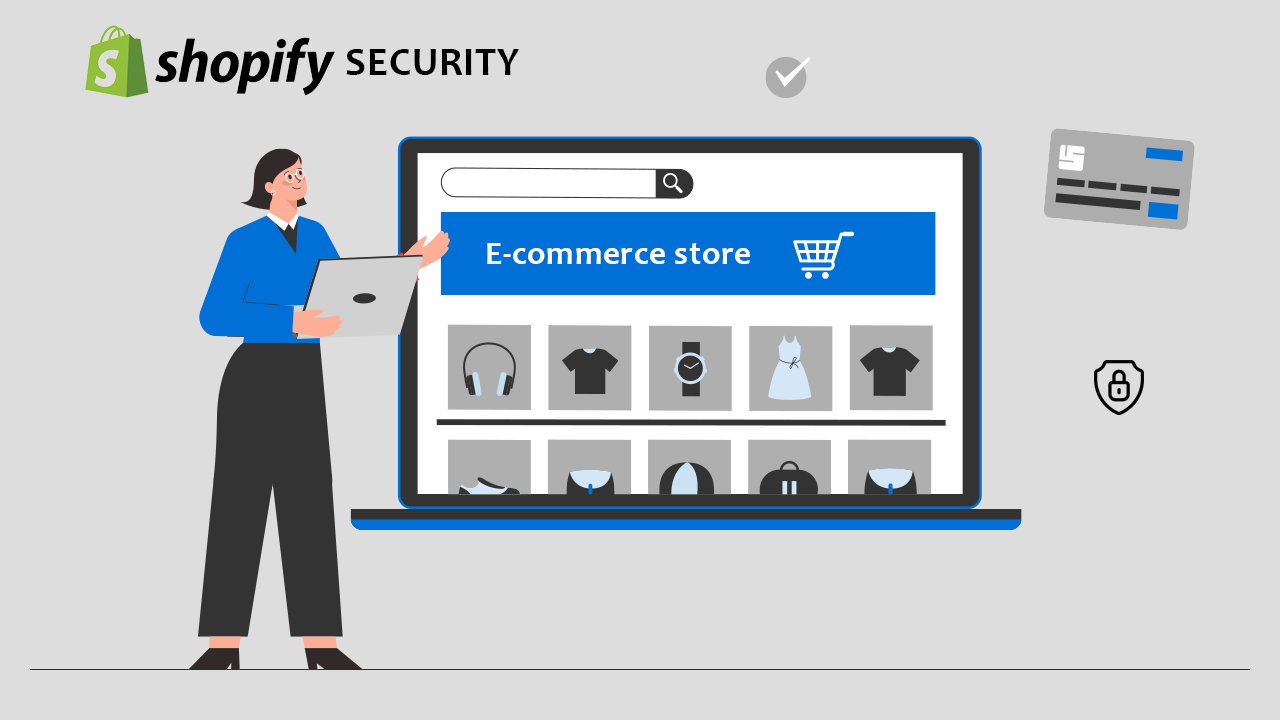In the dynamic world of e-commerce, where online transactions are the lifeblood of businesses, ensuring the security of your Shopify store is paramount. Protecting your store from cyber threats not only safeguards your business but also builds trust with your customers. Here’s a guide on how to fortify the security of your Shopify online store.
1. Keep Software Updated:
Regularly update your Shopify store and any installed apps to the latest versions. Software updates often include security patches that address vulnerabilities, bolstering your store’s defense against potential threats.
2. Strong Password Policies:
Enforce strong password policies for both your Shopify account and those of your team members. Use a combination of uppercase and lowercase letters, numbers, and symbols. Regularly update passwords and avoid using easily guessable information.
3. Two-Factor Authentication (2FA):
Enable two-factor authentication for an additional layer of security. 2FA requires users to provide a second verification step, typically through a mobile app or SMS, ensuring that even if login credentials are compromised, unauthorized access is thwarted.
4. Secure Your Connection with SSL:
Ensure your Shopify store uses SSL (Secure Socket Layer) to encrypt data transmitted between the user’s browser and your server. This not only protects sensitive customer information but also improves your site’s SEO.
5. Regular Backups:
Regularly back up your store’s data. In the event of a cyberattack or data loss, having a recent backup ensures that you can quickly restore your store to its previous state.
6. Monitor Suspicious Activity:
Utilize Shopify’s built-in monitoring tools to keep an eye on unusual or suspicious activities. Monitor login attempts, changes to critical settings, and unusual spikes in traffic that might indicate a potential threat.
7. App Vetting:
Only install apps from reputable developers. Before integrating any third-party apps into your Shopify store, thoroughly vet them for security. Check reviews, developer credentials, and ensure they adhere to Shopify’s security standards.
8. Educate Your Team:
Educate your team about the importance of security and implement protocols for handling sensitive information. Training your staff on recognizing phishing attempts and maintaining a security-conscious mindset is crucial.
9. PCI DSS Compliance:
If you handle credit card transactions, ensure that your store is Payment Card Industry Data Security Standard (PCI DSS) compliant. This standard sets forth security requirements for protecting cardholder data.
10. Regular Security Audits:
Perform regular security audits to identify vulnerabilities and address them promptly. Consider hiring a cybersecurity professional to conduct thorough assessments of your store’s security infrastructure.
By implementing these security measures, you not only protect your Shopify store from potential cyber threats but also build a robust foundation for the long-term success of your e-commerce business. Stay vigilant, stay informed, and stay secure.

